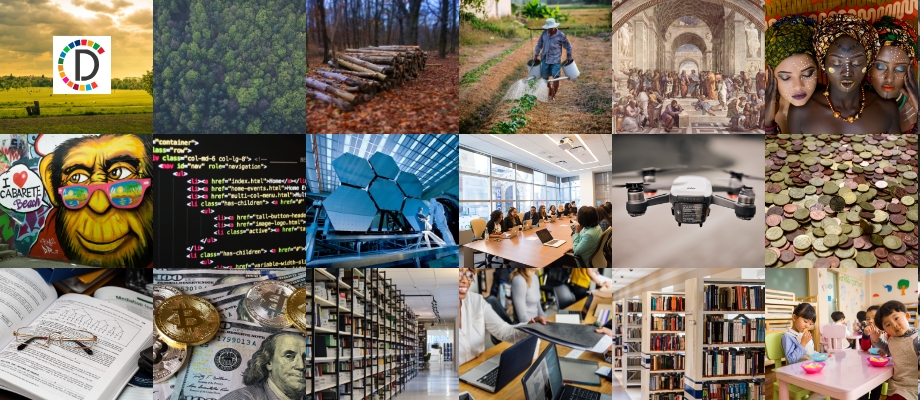Odinkalu Preaches Unity, Cohesion, Human Rights @ Big Ideas Podium
Big Ideas Podium is a public policy debate and engagement program usually hosted by the renowned think-tank organization – African Heritage Institution (AfriHeritage), Enugu. In this edition , Chidi Odinkalu, one of Nigeria's preeminent human rights advocates, scholar, activist and administrator, addressed his audience of mainly policy makers, academics, professional groups, civil society organizations, development partners, etc. on the need to promote human rights, democracy and national integration even as the nation prepares to inaugurate a new democratic era.

- Country:
- Nigeria
The Eastern coal city of Enugu was ignited with thrill and frenzy late last week, when Chidi Odinkalu, one of Nigeria's preeminent human rights advocates, scholar, activist and administrator, addressed his audience at the Big Ideas Podium. Big Ideas Podium is a public policy debate and engagement program usually hosted by the renowned think-tank organization – African Heritage Institution (AfriHeritage), Enugu.
In a keynote presentation titled: “Human Rights and Democracy: Agenda for a New Era” Odinkalu posited that not minding the many challenges the country is facing presently particularly in the areas of security, sectorial and ethnic tensions, cultural and religious differences, nationhood can possibly be achieved if everyone – the government, politicians, the media, civil society organizations, the academia, the citizenry, etc. can emphasize and build on the beautiful cases of inter-ethnic cohesion, integration, cultural and religious tolerance and acceptance that is replete in our history as a people; the country, according to him would be a far better place both in terms of human rights, democracy, the rule of law and nation-building.
Odinkalu who advised the people of the Southeastern part of the country to replicate their economic and industrial outreach and engagement with other parts of the country, also in the area of political relations and build bridges of alliance, understanding and rapport with other ethnic nationalities across the country. He made it clear to his audience that the people of the Southeastern part of the Country are not the most marginalized as frequently claimed. According to him, the huge diversity which the country has should be galvanized into positive productive outcome. He believes that the concept of indigeneship especially as it is defined in many instances in Nigeria has not helped in fostering the desired national integration and cohesion. “Indigeneship is posited as an exclusive, once-and-for-all-time occurrence that can only be asserted by one group or set of groups and their descendants. It is also bequeathed on a group, not individuals. Thus a person not recognized as from an indigene group cannot be an indigene irrespective of how long they or their ancestors or descendants have lived in the location and even if their proof of contact or settlement in the land pre-dates that of members of a group recognized as indigenous. One clear consequence of this is that both naturalized Nigerians and their descendants would be ineligible to access federal appointments as they can never qualify to claim indigeneship of any place. Another consequence is that this creates a barrier to social integration, fossilizes political competition and creates a ‘Chinese Wall’ between our politics and our economics. While the mobility fosters economic wellbeing, such mobility in the Nigerian context alienates the citizen from the exercise of full rights of participation: He concludes.
In his contribution, President of the Nigerian Union of Journalist (NUJ) Comrade Chris Isiguzo praised the partnership and understanding between the media and other stakeholders particularly the security agencies in ensuring that the 2019 elections were rancor free and recorded less friction between the press and law enforcement agents. According to him, the efforts of the current NUJ administration in reaching out to the security agents led to journalist not being harassed or abused in any way as used to be the case, he said even in one or two cases when such incidents were reported to him, they were quickly settled and the journalist promptly released. He encouraged his colleagues not to relent, despite the many challenges and hazards of the profession. He believes that with the current machinery of dialogue and periodic interface already established prior to the 2019 elections, incidents of rights abuses and harassment of the media by security agencies will be a thing of the past.
Earlier in his opening remarks, the Executive Director of AfriHeritage, Professor Ufo Okeke-Uzodike said the need for observance of human rights by every nation cannot be over-emphasized. According to him, “human rights are fundamental for sustained development. When human rights are systemically denied over a period, the basis for societal unity, prosperity and peace are usually hindered. The resulting tensions and communal dissonance are usually fertile grounds for social dysfunctions, conflict, or even war”. He highlighted areas where human rights are regularly abused as – brutality, illegal arrest and detention, torture, unlawful killings, ill-treatment of citizens, etc. by the security agencies. The Nigerian justice system being severely under-resourced and prone with interminable delays; Nigerian prisons, permanently overcrowded – with most inmates kept as pre-trial detainees. “There are also In Nigeria, defenders of human rights and journalists who often, face routine intimidation and harassment”.
This edition of the Big Ideas Podium witnessed a large turn-out of participants including professionals from all walks of life.
ALSO READ
More than 100 inmates escape after rain damages Nigerian prison
More than 100 inmates escape from Nigeria prison after rain damages facility
More than 100 inmates escape after rain damages Nigerian prison
Over 100 Inmates Escape Nigerian Prison Amidst Torrential Downpours
Nigerian Drug Traffickers Arrested; Contraband Worth Rs 1.61 Crore Confiscated










